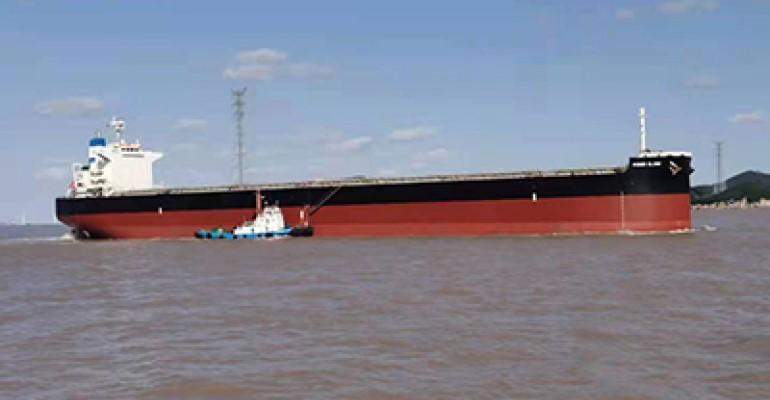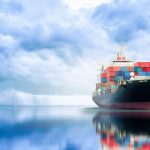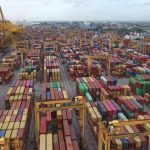The maritime sector of the emirate of Fujairah has witnessed progress, as it is one of the main drivers of sustainable development, due to the many projects that helped it achieve significant development in this area, in line with the vision of H.H. Sheikh Hamad bin Mohammed Al Sharqi, Supreme Council Member and Ruler of Fujairah, and the monitoring of H.H. Sheikh Mohammed bin Hamad bin Mohammed Al Sharqi, Crown Prince of Fujairah.
The emirate has a strategic location on the country’s east coast and is a key shipping hub, being an important economic centre linking the east and the west, allowing it to capitalise on various investment opportunities, which will be discussed by the Emirates News Agency (WAM) in this report.
A range of advantageous features is attracting investment opportunities to the emirate’s maritime sector, including Fujairah Port’s advanced infrastructure, the logistics services it provides, and the proactive services it offers to ships, in addition to the investment opportunities provided by the Fujairah Free Zone.
The Fujairah Customs Department also has a range of customs facilities, and the emirate’s petroleum port is in a strategic location.
The Ports Sector
Since its full commissioning in 1983, the Port of Fujairah has embarked on a continuous process of improvement, developing its container services and general cargo and dry and wet bulk facilities, enabling it to offer an efficient and comprehensive range of services.
The total length of the port quay is over seven kilometres, and it contains modern equipment, including mobile cranes, all types of cargo cranes, forklifts and trailers. A new service port was also constructed in 2019 dedicated to serving ships and tugboats, which provides refuelling, supply, repair, spare parts, inspection and crew change services.
The port also has an area allocated to storing containers and goods measuring some 300,000 square metres, and deals with large quantities of exports of rubble and limestone to the markets of the Indian subcontinent and Gulf Cooperation Council (GCC) countries.
The Fujairah Government is currently engaged in phase one of a project aimed at upgrading the Port of Dibba Al Fujairah and transforming it into a multi-use commercial port, by building two berths 650-metres long and 18-metres deep, and installing loading cranes with a capacity of 4,000 tonnes per hour.
Fujairah Free Zone
The Fujairah Free Zone offers a range of investment opportunities for established companies, who have easy access to all ports in the GCC region, the Red Sea, India and Pakistan via the weekly journeys of container ships.
The services provided by the free zone include cheaper custom tariffs, shorter business establishment times, the ability to apply for licenses in one day, lower establishment costs, and reduced public costs.
Trade facilitation
The role of the customs sector is to enhance the emirate’s competitiveness in the areas of foreign trade, customs tariffs and revenues, as well as to facilitate the movement of goods and individuals via customs checkpoints.
The Fujairah Customs Department uses the latest detection devices and modern programmes to modernise its work, facilitate customs inspections and complete transactions quickly and accurately.
The Petroleum Terminal
The Petroleum Terminal is the second largest bunkering centre in the world, as well as one of the largest petroleum ports. It has over 20 diverse berths with a length of eight kilometres, which are capable of handling various types of goods, stones and petroleum products.
The port is run on a distinguished business model, connecting nearly 17 large companies that store petroleum products at the port’s berths through the system of connecting pipelines.
Source: Hellenic Shipping News






